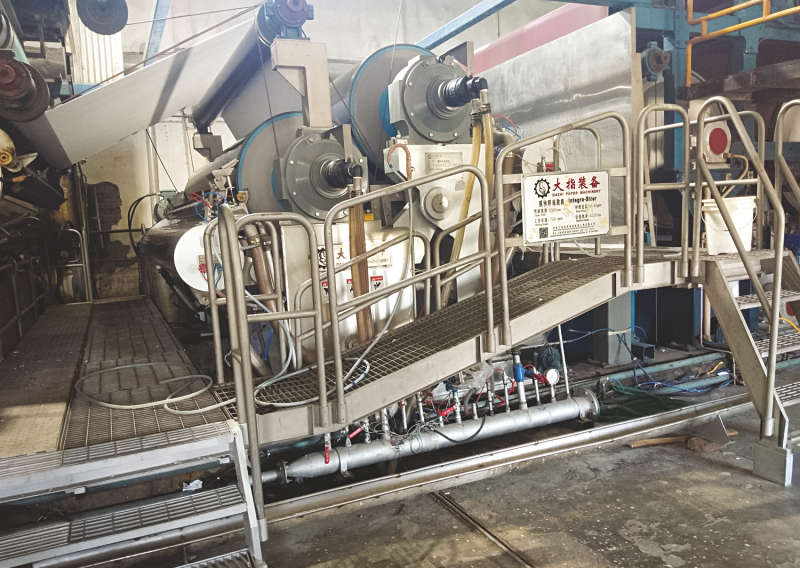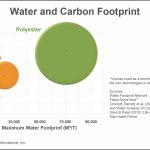Fibremarx Papers has taken some well-informed investment decisions to upgrade its recycled-fiber-based writing-printing paper facility at Kashipur, Uttarakhand. The company has recently installed a film press in PM section and has revamped its pulp section by adding a new disperser and a screening system. The crucial technology overhaul has paid the company good dividends in terms of paper quality outcomes and earning it a niche market. Fibremarx Papers’s next move is to set up a cupstock-variety white board plant, based on 100 percent recycled fiber. The project is in its final stages.
Excerpts from Paper Mart’s interview with Mr. Jasdeep Singh Goraya, Managing Director, Fibremarx Papers Private Limited:

Paper Mart: To start with, tell us what motivated you for the current expansion and investment in new technology that you are doing?
Jasdeep Singh Goraya: As a recycled-fiber-based paper mill, we knew the significance of pulp quality in papermaking. Improving the pulp quality therefore became our first priority which we accomplished by investing in good technologies and installed Cellwood disperser, Andritz screening system, and so on. These investments remarkably improved the quality of our pulp. Thereafter, we focused on how to improve the paper quality, especially the surface attributes which could facilitate better printability and runnability. Keeping these ends in mind, we invested in new film press in our writing-printing (W&P) paper machine and the outcome is really what we desired.
Behind these investments, improvement of pulp and paper quality was the major driving force, and the desire to create a niche market for our products was a constant reminder for us to improve the quality. Most of the small- and medium-sized mills don’t produce standard products. Fibermarx always wished to make products which are unique in their own way and which have demands of their own, giving us some premium for the quality. With these investments, we are now targeting the niche market where only few mills are operating in the recycled-fiber-based W&P segment. Moreover, in coming years, we look forward to produce A4-size paper with much better quality and even expect boost in our production.
PM: Tell us more about this film press that you have installed in W&P paper machine. How did you select the vendor which could fulfill your technical expectations?
JSG: Being a medium-sized paper mill, we are very particular about our budget and have to be careful about where we spend the money. We did extensive research on available alternative to select the best for us in terms of cost and sustainability of technology. It was in this process of technology exploration that Mr. RK Agarwal of MR MAC-TECH, who has long been our trusted adviser, pitched us the idea to visit Henan Dazhi Paper Machinery plant in China.
We were quite impressed by the products and machinery made by Dazhi for their high-end technology and robustness, which are in no way inferior to that of the frontline European machines. Dazhi is one of biggest paper machine manufacturers that operates on an expansive setup. After a thorough research on the company and products, we finalized our machine. The technical team and advisers from Dazhi has been quite cooperative with us in the selection of the machine.
PM: Share with us your experience, right from order finalisation to start-up of the machine.
JSG: The experience was smooth throughout the process, from finalisation of the order to machine installation and to its start-up, nothing bothered us. Film press is quite a sensitive machine and we needed to have a good production line for it because if there are regular breakages on the line, then film size press would not gel well with the entire system. We rectified our production line first and then installed the film press. After the film press installation, the entire line ran smoothly for one and a half hours without any breakage. The technical team did not allowed us to engage in any other operational activities which might compromise the overall runnability and performance of the film press.
PM: Have you started the commercial production yet after installing the film press? How has been customers’ feedback on product quality?
JSG: We are yet to start the commercial supply and haven’t provided our customers any samples. Our first priority is to produce the benchmark quality. However, we do have orders from government undertakings for surface size papers. Once we achieve the desired quality, we will make our products commercially available for the market. We are coming up with a strategy to create a good customer base in the market with limited dealers.
PM: Tell us something about ROI or payback you are expecting from this investment.
JSG: We are expecting a substantial ROI within the six months of making products commercially available. It is a bold decision but we are confident that quality outcomes will help us get the payback fast. The Indian customers have been looking for quality in recycled paper since long. Only few manufacturers have been able to establish a brand value based on the quality; most mills are producing commoditized products with 70-80 brightness only. The film press is certain to help us attain much better quality owing to improvement in many surface properties of the paper.
 PM: Kindly give us a brief history of Fibremarx Papers.
PM: Kindly give us a brief history of Fibremarx Papers.
JSG: We started making paper from bagasse during our initial days in Banwari Paper Mills, a parent company of Fibremarx Papers. We rather decided to setup a new facility than going ahead with expansion at Banwari Paper. We started Fibremarx with state-of-the-art de-inking system and recycled fiber-based paper machine. We faced a tough journey for a decade as the market was quite competitive and the bagasse-based mills earned approximately 4-5 times the margins earned by recycled fiber based mills. It was difficult keeping up with the growing pace of the market, investing in better infrastructure, and improving the product quality.
It has taken us a long time to reach where we are now. We have always tried to keep ourselves ahead in the game through timely investments, such as installing a double de-inking system, high-performance rewinder, calendar, headbox, and state-of-the-art pulp mill. We have from the beginning focused on producing quality products with high demand for in the market.
Among wood-based, agro-residue-based, and recycled-fiber-based mills, it is last one which has always taken the hit when it comes to business. This prompted us to improvise and come with sustainable products that meet the market requirements. We are also planning to invest in a new plant to produce cupstock-variety white board using recycled fiber. The decision to invest in this cusptock-variety board was taken keeping in mind the surging demand in the packaging segment, especially the food-grade packaging.
PM: When are you planning to set up this cupstock-variety board plant and what kind of investment would it involve, and the capacity for it?
JSG: We have already procured the machinery and the pulp mill set-up is under process. The plant will produce 150-160 GSM liquid-packaging board with a capacity of around 250 TPD. The paper machine speed would be 300mpm and deckle size 3300mm. We have sourced the oil-heated calendar from Dazhi Paper Machinery, pulp mill line from FJLIME, and boiler from IBL.
We have procured extractor press and pressure former from P. Rakesh Industries, and are planning to get bar coater from P. Rakesh itself. As of now, no other mill is making the 100-percent, recycled-fiber-based white board and this makes us pioneer in the segment. We are also installing disperser and de-inking along with a new pulping system which has not been introduced in India yet.
PM: Being a recycled-fiber-based paper mill, residual plastic and its disposal is an issue. Brief us on how Fibremarx adhere to sustainable papermaking.
JSG: We are aware that the new plant will be recycling a lot of PE-coated materials. Keeping this in mind, we will also setup a plastic recycling plant to make granules out of plastic and that would be supplied to the plastic industry. There is also an ETP installed for the wastewater treatment. We ensure to follow all the CPCB norms.
As far as sustainability goes, we ensure to include technology and products that are sustainable for longer time. We could have gone with duplex paper board but there are already large numbers of mills producing it. Moreover, we wanted to go ahead with something which is of a premium grade. The product we are planning is close to Rs. 65 to 70/kg, while the products supplied by duplex mills cost around Rs. 40-45/kg, which is double the cost of what we will offer.
We have strategically planned the production and these products will have a longer life span than a duplex or the lower-grade packaging papers. For the production of the white board, we will only purchase pre-consumer waste to ensure the efficiency in the system. There are dedicated vendors for the procurement of raw material of that kind.



